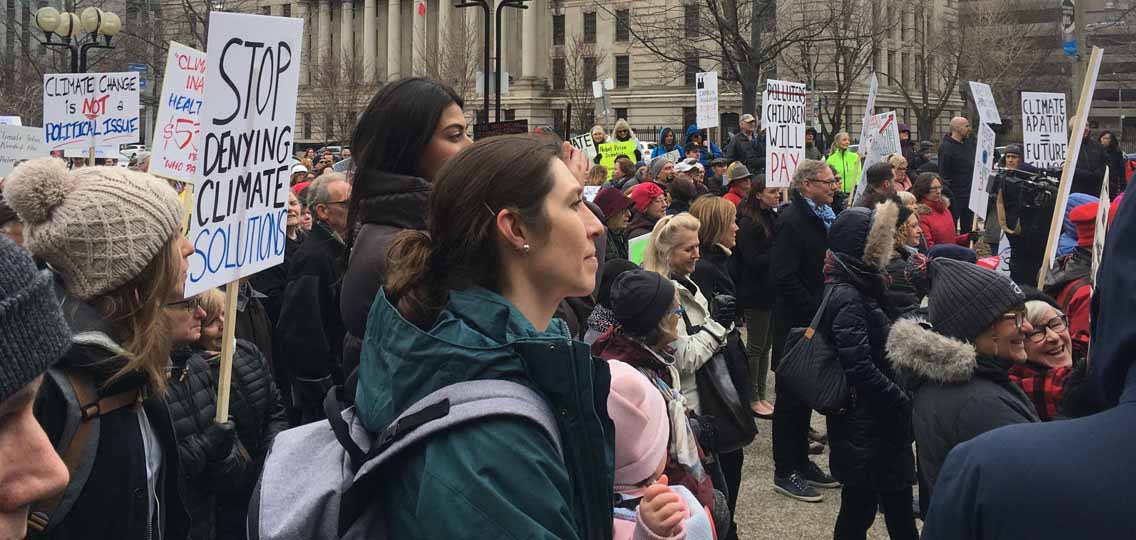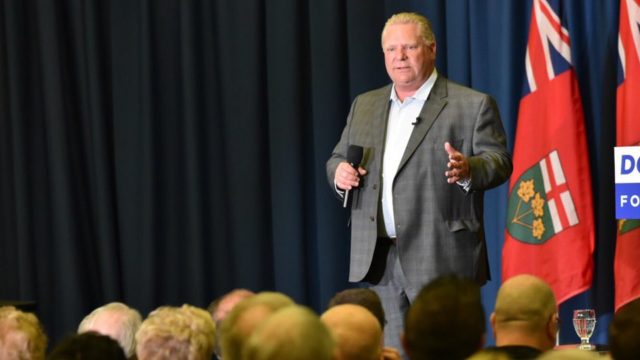Ontario Premier Doug Ford has vowed to derail the national carbon price. Ecojustice is fighting in court to make sure Canada’s climate plan stays on track.
The national minimum carbon price went into effect on April 1, 2019. Several provinces, including Saskatchewan, Ontario, Manitoba and New Brunswick, are challenging the federal government’s ability to impose national measures to reduce greenhouse-gas emissions.
In February, the Ecojustice team went to Regina to intervene in Saskatchewan’s court challenge. We were there on behalf of our clients, the David Suzuki Foundation and the Athabasca Chipewyan First Nation.
Now we’re turning our attention to Ontario. It’s going to be a tough fight.
Premier Ford has turned climate inaction — cancelling Ontario’s cap and trade program and defying the carbon price — into one of his signature policies. Not only will those decisions rob the province’s coffers of $3 billion in lost revenue, they show that Ford is dangerously out of touch with the reality of climate change.
The reality is that climate change is a national emergency. Recently, federal scientists released a report on Canada’s changing climate that showed Canada has been warming about twice as fast as the global average – and this pattern of accelerated warming will continue in the future.
The report outlines several possible futures for our country. Even if Canada reduces its greenhouse-gas (GHG) emissions, Canadians will still experience climate change effects like increased flooding, more wildfires, and increasing loss of wildlife. However, if GHG emissions continue unchecked, we’re in for rapid changes so devastating that it’s hard for us to even imagine.
At the very minimum, Canada must meet its “nationally determined contribution” under the Paris Agreement, reducing greenhouse gas emissions by 30 per cent below 2005 levels by 2030. But we know that this Harper era target is woefully inadequate. The science is clear that much more rapid emission cuts are needed, so hitting the current target is only a first step on the path towards getting to total decarbonisation by 2050. Achieving these reductions will require the provinces and federal government to work together to implement climate solutions on a national scale. Carbon pricing is a proven tool for reducing emissions, and ensures that Canada can effectively control its cumulative GHG output. But we’ll need even more measures than what are currently on the table if we’re going to meet our targets.
The stark choice before us, it seems, is between a livable future and a world that will be nearly uninhabitable. Which future will Canada choose? This court case will help shape the answer.
At Ecojustice, we’re fighting for a livable future — one that requires national climate solutions and collective action from all provinces. It’s the only way to get to a lower-carbon future, quickly.
We hope we can we count on you to stand with us in this important legal fight.




